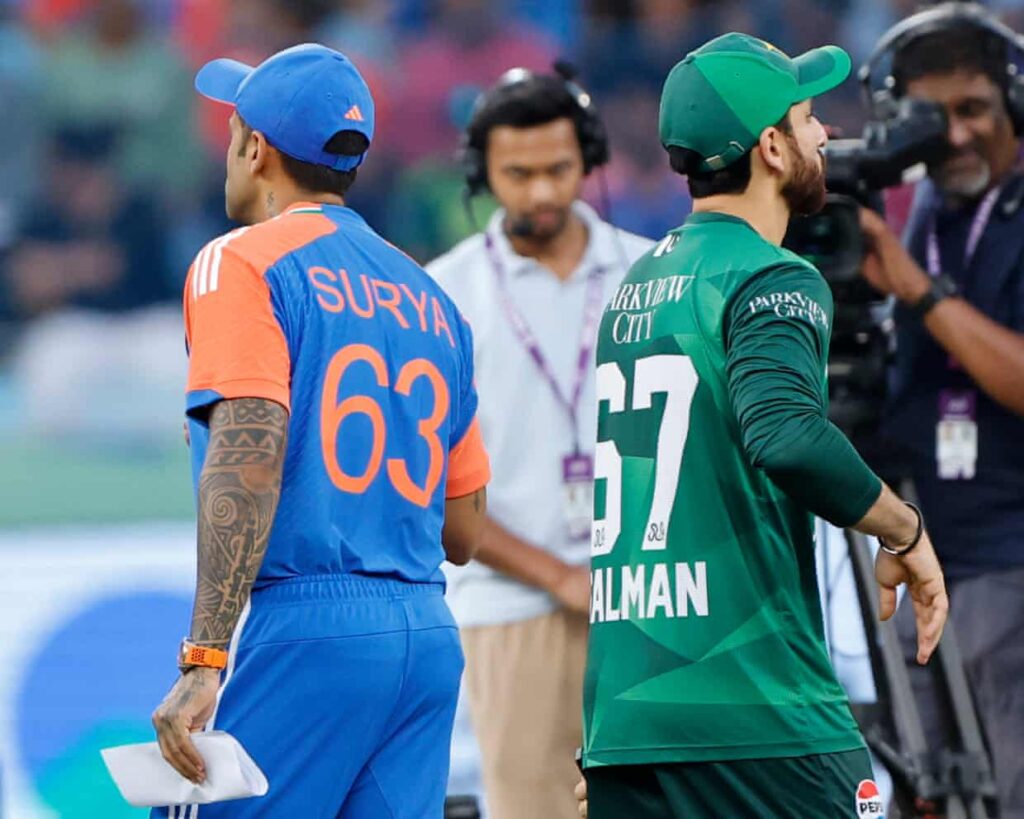
The absence of a post-match handshake between players from India and Pakistan following a recent Asia Cup match has sparked significant diplomatic tensions. India defeated Pakistan by seven wickets on September 10, 2023, but the lack of customary gestures of sportsmanship has led to a formal complaint from the Pakistan Cricket Board to the Asian Cricket Council. Indian officials emphasized that handshakes are a tradition, not a requirement, escalating the situation into a noteworthy diplomatic issue.
According to research from the University of Dundee, the ideal duration for a handshake is between one-and-a-half and three seconds, a brief moment intended to foster camaraderie and mutual respect. In the context of cricket, it serves as a symbol of sportsmanship, yet its absence can resonate far beyond the field. The missing handshake after the recent match has been dubbed #Handshakegate on social media, where clips of the incident circulated rapidly, dissected by fans and commentators alike.
The context for this diplomatic row is rooted in ongoing tensions between the two nuclear nations. Indian captain Suryakumar Yadav indicated that the omission of the handshake was a direct reflection of heightened hostilities following a militant attack in April 2023 in Indian-administered Kashmir that claimed the lives of 26 civilians. This led to counter-strikes and increased military activity, thereby making the absence of handshakes not merely a breach of etiquette but a potent political statement.
The significance of handshakes in cricket transcends simple ritual. They represent a commitment to the sport’s ethos, where competition remains on the field. The MCC’s Spirit of Cricket preamble urges players to respect their opponents and to play hard yet fair. Historically, handshakes have symbolized reconciliation and unity. For instance, the handshake between Richie Benaud and Frank Worrell after the first tied Test in 1960 marked a pivotal moment for cricket, as it symbolized the sport’s expansion beyond traditional boundaries.
Throughout cricket’s history, moments of diplomacy have often unfolded on the field. In 1987, General Zia-ul-Haq of Pakistan met with India’s Prime Minister Rajiv Gandhi during a cricket match, a gesture that was emblematic of “cricket diplomacy” amid rising tensions. Similarly, in 2011, leaders Manmohan Singh and Yousaf Raza Gilani greeted both teams before a World Cup semi-final match, illustrating how the sport can act as a conduit for peace.
However, the lack of a handshake can also ignite controversies. Earlier this year, Scotland opted not to shake hands with Nepal’s Sandeep Lamichhane, who faced legal issues, while an incident between Virat Kohli and Naveen-ul-Haq Murid during the Indian Premier League resulted in fines after a heated exchange. These moments reflect how handshakes can serve as more than mere formality; they can encapsulate the broader sentiments of rivalry and respect.
Adding to the ongoing narrative, the cricketing world witnessed another incident this year when England’s Ben Stokes extended a hand to conclude a game, but Ravindra Jadeja and Washington Sundar opted to continue their innings instead. The moment gained traction online, as the initial refusal became a focal point of discussion regarding the spirit of the game.
The implications of a missing handshake resonate with social psychology, indicating that such gestures can significantly influence perceptions of trust and respect. This evolving narrative serves as a reminder of cricket’s broader role in society, where a simple gesture can embody complex relationships between nations.
In a separate development, the UK’s visually impaired women’s cricket team is preparing for the inaugural Blind Cricket Women’s Twenty20 World Cup scheduled for November in India and Nepal. The team has announced a 15-player squad but faces financial challenges, with an estimated cost of £60,000 for the trip. A benefactor has pledged £30,000, and public donations have contributed approximately £7,500, leaving a significant gap to bridge.
The squad, selected by John Garbett, the UK Women & Girls VI Cricket programme manager, comprises players from various sight classifications, indicating the growing recognition of visually impaired talent in cricket. If funding is secured, the UK team will compete against nations including Australia, India, Nepal, Pakistan, Sri Lanka, and the USA.
As cricket continues to evolve, both on and off the field, the importance of gestures like handshakes remains a focal point of discussion, reflecting deeper societal issues and the potential for sport to act as a bridge between cultures.





